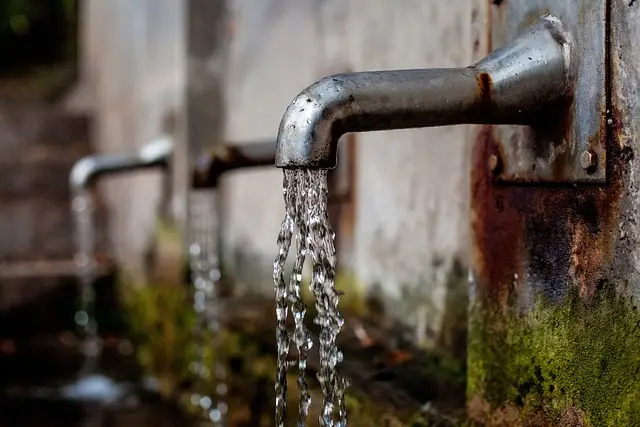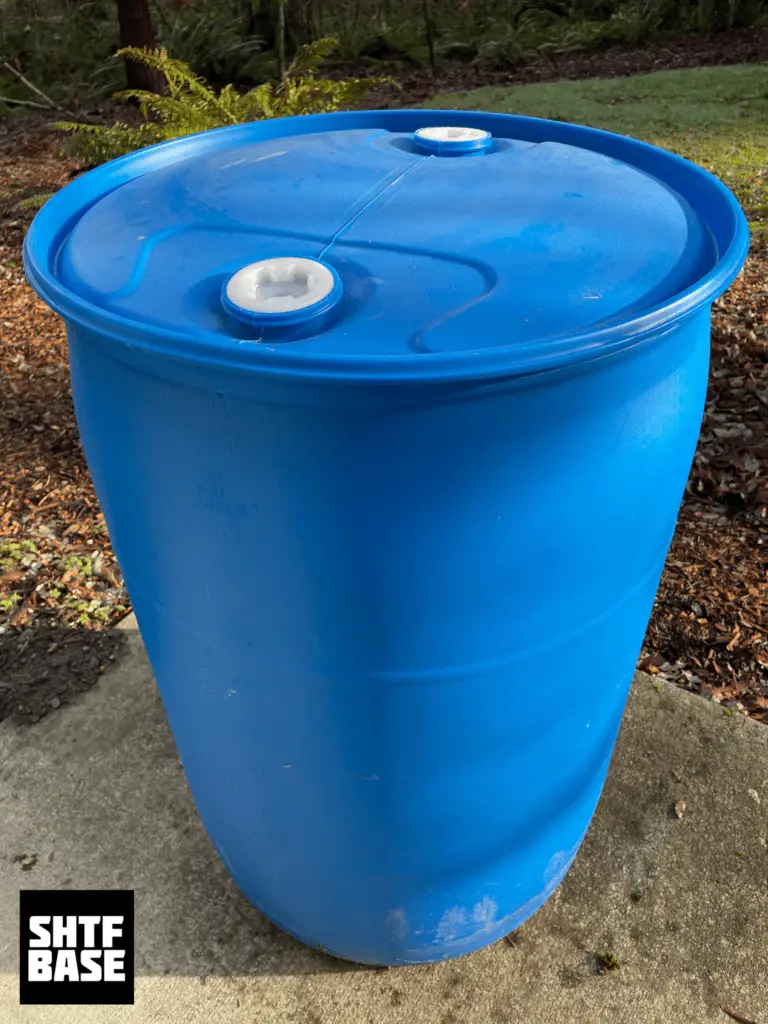
Water should be near your top priorities when building your emergency survival supplies. You need to be thinking about storing water long term for emergencies. Humans can only survive for about three days without drinking water. We can live for three or four weeks without food.
In many emergency or natural disaster scenarios, there is a distinct possibility that your water supply is compromised. I live in a very earthquake-prone area, and a significant earthquake can easily damage pipes and water distribution systems. I am fully prepared not to have running water for an extended period should a major earthquake hit.
FEMA recommends at least 1 gallon of water per person daily—two quarts for drinking water and two for food preparation.
FEMA’s recommendation is the bare minimum in the worst-case scenario. Many people will probably struggle with 1 gallon per day, especially in hot climates or if doing a lot of physical activity.
In my prepping, I plan on 2 gallons of water per person daily. For my daily use, I need about 2 gallons. I expect to exert myself more during a significant disaster physically.
How Many Days Worth of Water Should I Store?
FEMA recommends three days worth of water minimum. I don’t think this is remotely enough, considering how important water is to our survival.
If you’re in a dry and remote area, you may want to store more water. Or if you live close to clean bodies of water, you may be able to get by with less in storage. I keep a month of water per person in my household.
Your needs and situation may differ from mine, so evaluate your case to determine your needs.
Factors that May Affect How Much Water You Need for Long Term Storage
Your water needs during daily life may be dramatically different during an emergency.
- Physical Activity – The more active you are, the more water your body will need. During an emergency, there is a good chance you will be more physically active trying to survive.
- Climate – Living in a hot environment will require more water than living in a colder climate.
- Age – Young kids don’t need as much water as most adults. I probably drink four times the water of my son.
- Physical Condition – Some people need more water. My breastfeeding wife needs more water than if she wasn’t breastfeeding.
- Health – An unhealthy person may not be able to survive on limited water as well as someone in good health.
What containers Should be Used to store water?
There are numerous options when it comes to water storage containers. Check out our detailed post on the best water storage containers.
Bottled Water
Storing bottled water is the quickest and easiest way to get an emergency water supply. There are downsides to this, though. The biggest one is limited shelf life. You can mitigate this by regularly rotating your bottled water.
Pros
- Plentiful and cheap
- Easy to transport
Cons
- Limited shelf life of 6-12 months
- Plastic bottles break down and can leech into the water

Glass Containers
There are a lot of benefits to glass containers. They can last indefinitely and are impervious to many forms of contamination. If you’re using canning jars, you have the advantage of being able to sanitize the water while it’s in the jars.
Pros
- Can last indefinitely
- Easily sterilized
- It does not break down
- Visible contents
Cons
- Fragile
- Heavier than plastic containers
- Relatively small size

Plastic Water Storage Containers
These are specialized containers designed for long-term water storage. They are the best option if you’re looking to store more significant amounts of water. Plastic containers come in many shapes and sizes to suit your needs. I use 55-gallon water barrels for most of my emergency water storage. Then I have several smaller containers that are more convenient to transport.
Pros
- Durable
- Great for bulk storage
- Many sizes available
- It can be lightweight
Cons
- It must be food grade

Preparing Water for Storage
Clean and Sanitize Your Containers
For the most extended shelf life, starting with clean containers and clean water is critical. Contaminated water will not last as long and may pose a severe health risk. Many waterborne diseases can cause dysentery and even death.
You can use unscented liquid chlorine bleach to disinfect your containers. Be sure to use new fresh bleach because it degrades over time and becomes less effective.
Disinfect Your Water if Necessary
Many water sources in the US are very clean. No additional treatment is required before putting the water in your containers. Check your local water municipality for information to determine if you should treat your water.
Fill Your Containers
Using a clean water source, fill your sanitized containers. If you need to use a hose, be sure it is one meant for potable water. I use an RV potable water hose since my barrels are far from my water spigot.
Store Your Containers
Choose a suitable cool, dry place to keep your containers. Extreme temperatures, chemicals, and light can cause your water to spoil.
Also, avoid placing your water containers directly on the ground. Chemicals can leach into containers from concrete and other floor materials. I stack my containers on wood platforms.
FAQ
Do I need to disinfect (add chemicals to) the water?
That depends on your water source. If it’s already clean then probably not. Most city water sources in the US are clean enough to not require additional disinfecting.
My stored water tastes funny. Is something wrong?
Possibly, it’s hard to know for sure but if your water tastes strange the safest option is to not drink it.
Can I use the swimming pool as my emergency water source?
You can probably use your pool water during an emergency for a while. The thing is it will not stay safe to drink long term. It may need additional filtering and disinfection to drink safely.
Do I need to filter my water before consumption?
That will depend on how your water was stored and how clean it is. If you have any doubts about the safety of your water additional filtration and sanitation is wise. Waterborne diseases are no joke.

